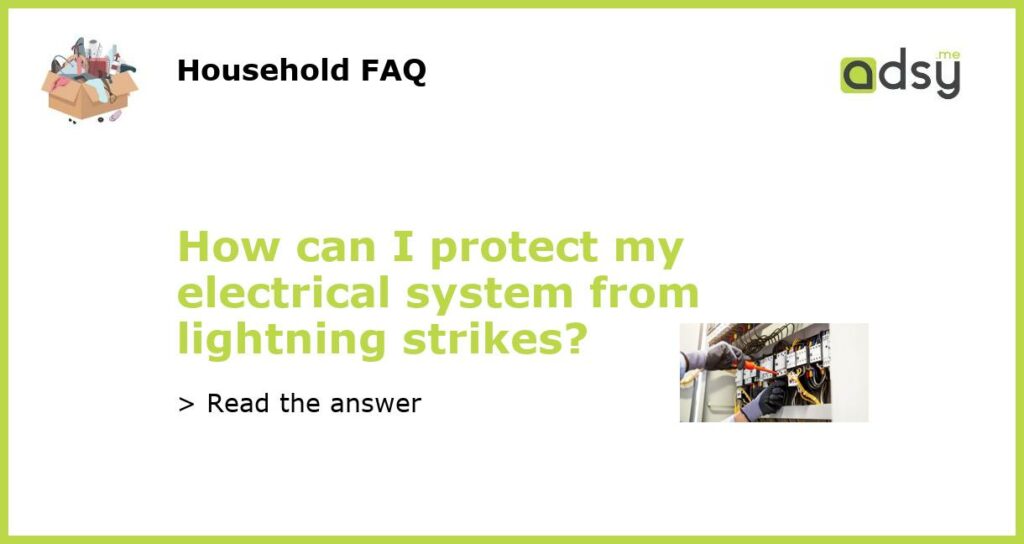Understanding the Risks of Lightning Strikes
Before we dive into how to protect your electrical system from lightning strikes, it’s important to understand the risks associated with them. Lightning strikes can cause severe damage to your electrical system, resulting in costly repairs and potential downtime.
When lightning strikes a building, it can follow electrical circuits, telephone lines, plumbing, and even structural components. This can result in power surges, fires, and damage to appliances, electronics, and other electrical equipment. Therefore, it’s crucial to take measures to protect your electrical system from the destructive power of lightning.
Install a Lightning Protection System
One of the most effective ways to protect your electrical system from lightning strikes is by installing a lightning protection system (LPS). A lightning protection system consists of lightning rods, conductors, and grounding systems designed to intercept lightning strikes and route the electrical energy safely into the ground.
The lightning rods, also known as air terminals, are installed at the highest points of your building, such as rooftops or chimneys. These rods create a path of least resistance for the lightning to follow, directing it away from your electrical system. The conductors, typically made of copper or aluminum, connect the lightning rods to the grounding system, which then safely disperses the electrical energy into the ground.
Use Surge Protectors and Uninterruptible Power Supplies
In addition to installing a lightning protection system, it’s essential to use surge protectors and uninterruptible power supplies (UPS) to safeguard your electrical devices from power surges caused by lightning strikes.
A surge protector is a device that plugs into your outlets and protects connected devices by redirecting excess electrical energy into the ground. It acts as a barrier between your electrical system and potentially harmful voltage spikes caused by lightning strikes or other electrical disturbances.
An uninterruptible power supply, on the other hand, provides backup power to your electrical devices in the event of a power outage caused by lightning or other factors. It not only protects your devices from sudden power loss but also filters out electrical noise and regulates voltage, further safeguarding them.
Ground Your Electrical System Properly
Proper grounding of your electrical system is crucial for protecting it from lightning strikes. Grounding refers to the process of creating a direct path for electrical current to flow safely into the ground in the event of a fault or surge.
To ensure proper grounding, you should have a professional electrician inspect your electrical system and ensure that it meets the necessary grounding requirements. This includes connecting your electrical system to a grounding electrode system, such as a ground rod or metal water pipe, which allows excess electrical energy to be safely discharged into the earth.
Regular Maintenance and Inspection
Maintaining and inspecting your electrical system regularly can help identify any potential issues that may make it more vulnerable to lightning strikes. This includes checking for loose or damaged electrical connections, worn-out surge protectors, and outdated grounding systems.
It’s advisable to consult a licensed electrician who can conduct a thorough inspection of your electrical system and address any deficiencies. They can also recommend any necessary upgrades or additional protection measures based on your specific needs and the location of your building.

